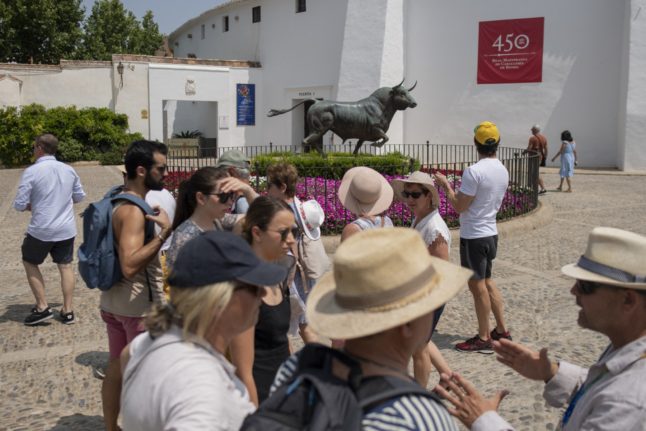The EU has announced that its ‘Digital Green Certificates’ – also referred to as vaccine passports – will be ready by June, allowing tourists to travel more easily throughout the bloc, including to Spain.
This would mean that travellers with the certificates would be able to enter Spain without having to produce a negative PCR test or quarantine, General secretary of Digital Health Alfredo González said on Thursday.
“It will allow for more people to arrive in a safer manner,” he said and “will facilitate the mobility of people in the European Union, guarantee public health protection and permit social and economic activity to resume free of charge”.
González explained that the certificates would be in a digital or paper format and feature a QR code, containing all the essential information on the traveller.
The European Commission website, states that the Digital Green Certificates will have information on whether the traveller has been vaccinated or not, if they have received a negative test result or if they have recovered from Covid-19.
“This certificate is not a passport, it’s not a travel document, and it’s not a requirement for travel,” González continued.
“It will respect data protection, safety and privacy. It is designed not to be discriminatory, and that is one of the major advantages,” he explained, hoping that the certificates will give a boost to summer tourism in Spain.
He said that Spain has already started the process of implementing the certificate to be ready in time for June.
Sources from Spain’s Tourism Ministry also showed their enthusiasm for the certificates when they told El País: “We are optimistic and with this certificate, we are taking a giant step”.
The EU Commission has said that national authorities will be in charge of issuing the certificates. It has not been decided yet how those in Spain will get one, whether they will be issued by hospitals, test centres or health authorities.
“When travelling, every EU citizen or third-country national legally staying or residing in the EU, who holds a Digital Green Certificate, should be exempted from free movement restrictions in the same way as citizens from the visited Member State,” the commission stated on its website.
Due to the pandemic, Spain saw fewer than 20 million visitors last year, the worst year for tourism seen in the last 50 years. Authorities are hoping that with the help of the Digital Green Certificates, the country will see double that number of foreign visitors this year.
READ ALSO:



 Please whitelist us to continue reading.
Please whitelist us to continue reading.
Member comments